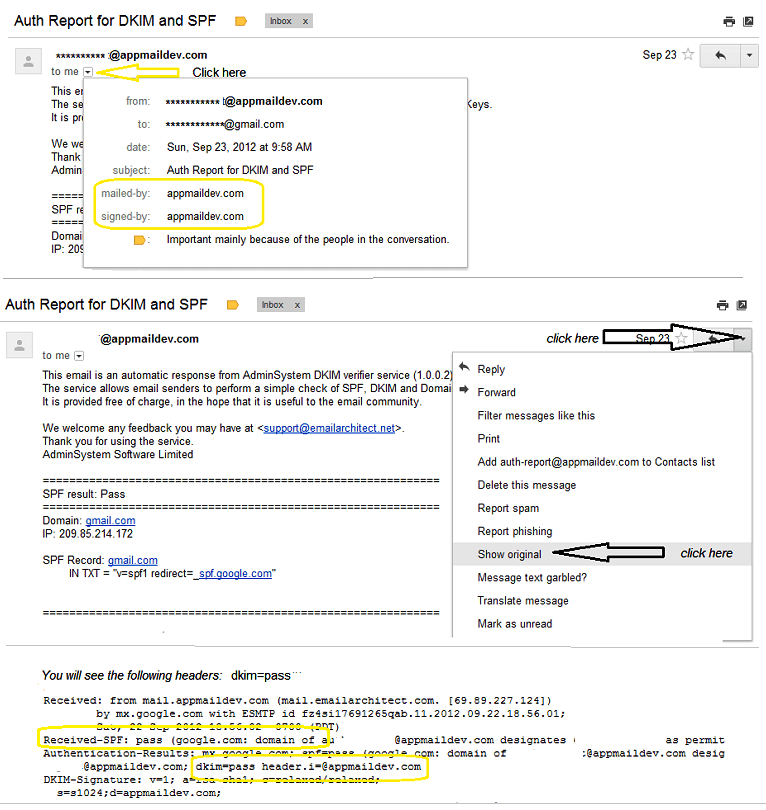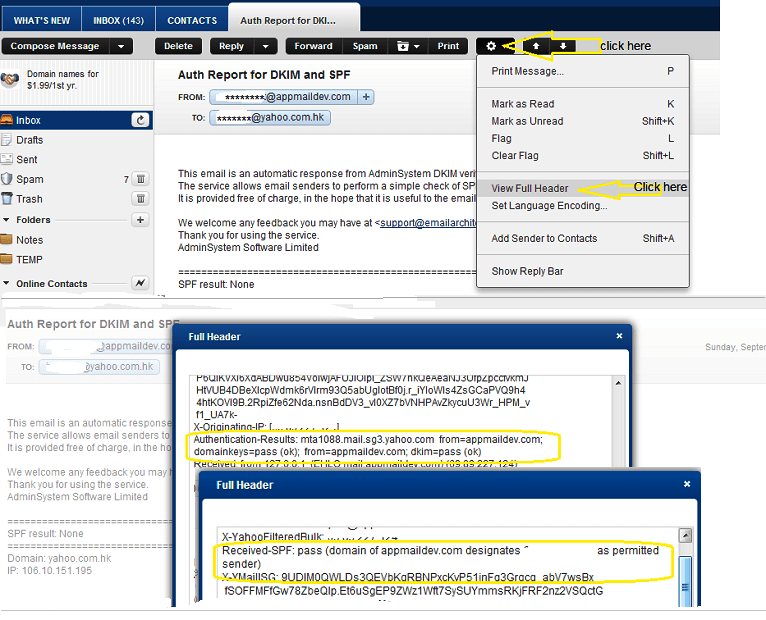DKIM Test
How to test DKIM signature
First of all, please click the following button to get a test email address. Secondly, you can send an email to this email address. Finally, a DKIM report will be generated in a short time.
Use Gmail to test DKIM
If you have a Gmail account, you can also send test email to your Gmail email address. Then open your email in Gmail web mail, click "show details". If there is "signed-by: your domain", your DKIM signature is ok.

Use Yahoo to test DKIM
If you have a Yahoo account, you can also send your email to your Yahoo email address to test DKIM signature. Then open your email in Yahoo web mail, click "Full Header". If there is "dkim=pass" in your email header, your DKIM signature is ok.

Test DKIM by uploading email content
If you have an email message file (*.eml) and want to test DKIM/DomainKey signature in the email message, you can test it by uploading the email message content directly.
Please click here to start the test.
Related Links
-
Set up DKIM in Exchange Server 2007/2010/2013/2016/2019 - Tutorial
This tutorial introduces how to add DKIM signature to outgoing emails in Exchange Server 2007/2010/2013/2016/2019. It also demonstrates DKIM selector and Sender rule usage.
-
Set up DKIM in Exchange Server 2003/2000 - Tutorial
This tutorial introduces how to add DKIM signature to outgoing emails in Exchange Server 2003/2000. It also demonstrates DKIM selector and Sender rule usage.
-
Set up DKIM in IIS SMTP Service - Tutorial
This tutorial introduces how to add DKIM signature to outgoing emails in IIS SMTP Service. It also demonstrates DKIM selector and Sender rule usage.
-
Inbound DKIM/SPF/DMARC Authentication in Exchange Server 2007/2010/2013/2016/2019 - Tutorial
This tutorial introduces how to verify and authenticate DKIM/SPF/DMARC for inbound emails in Exchange Server 2007/2010/2013/2016/2019. It also demonstrates how to use the authentication-results to stop spam and spoofing emails.
-
Dynamic Disclaimer and Html Signature with Embedded Images in Exchange Server 2007/2010/2013/2016/2019 - Tutorial
This tutorial introduces how to add dynamic disclaimer or html signature with embedded images in Exchange Server 2007/2010/2013/2016/2019.
-
Sender Based Routing in Exchange Server 2007/2010/2013/2016/2019 - Tutorial
This tutorial introduces how to set up Sender Based Routing or Transport Rule Based Routing in Exchange Server 2007/2010/2013/2016/2019.
-
Enable Opportunistic TLS in IIS SMTP Service - Tutorial
This tutorial introduces how to enable opportunistic TLS in IIS SMTP Service.
- Bulk Email Sender Guidelines
- Comments, Feedback for this Test tool.